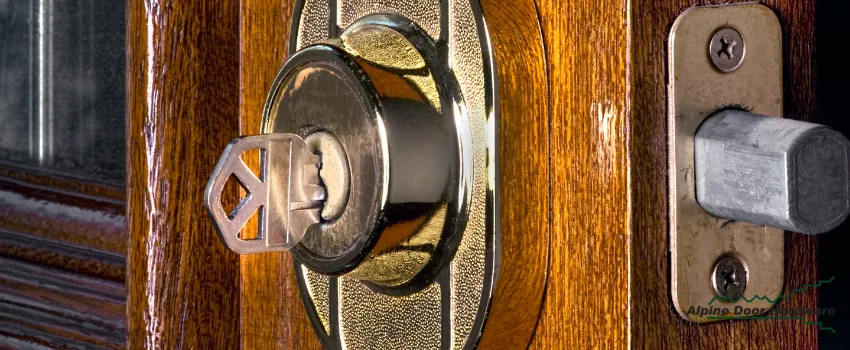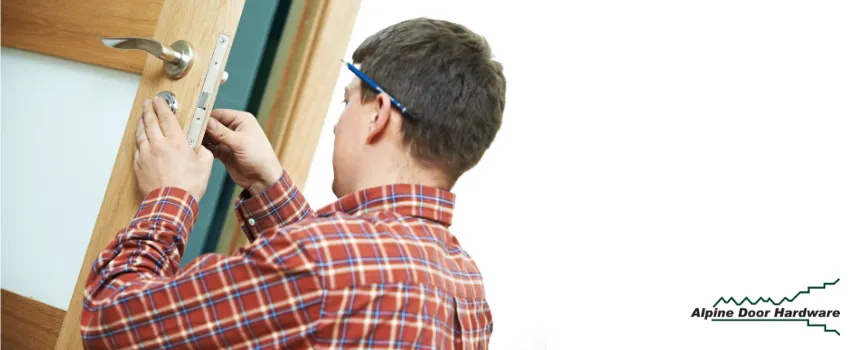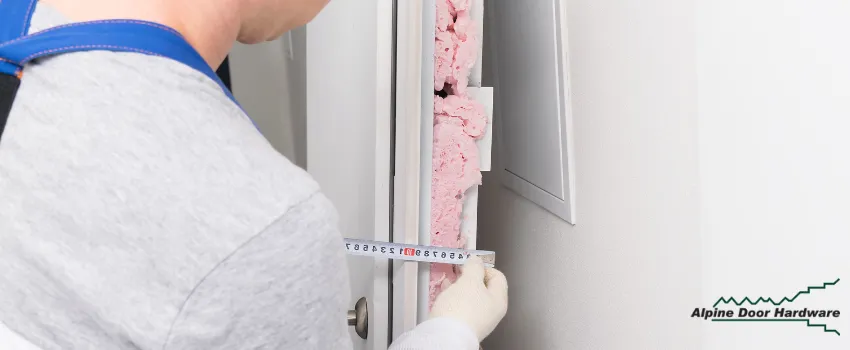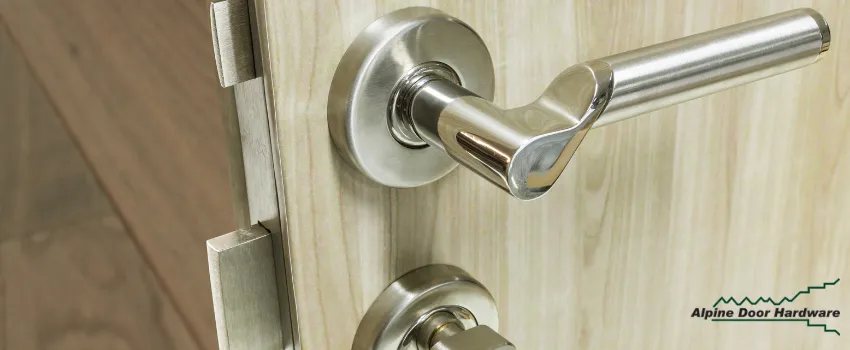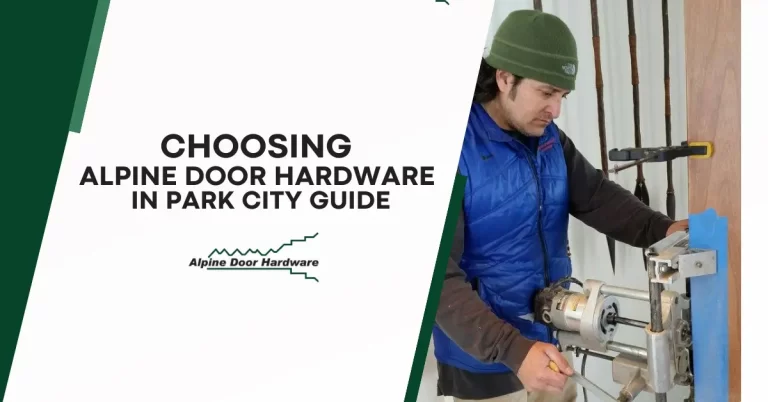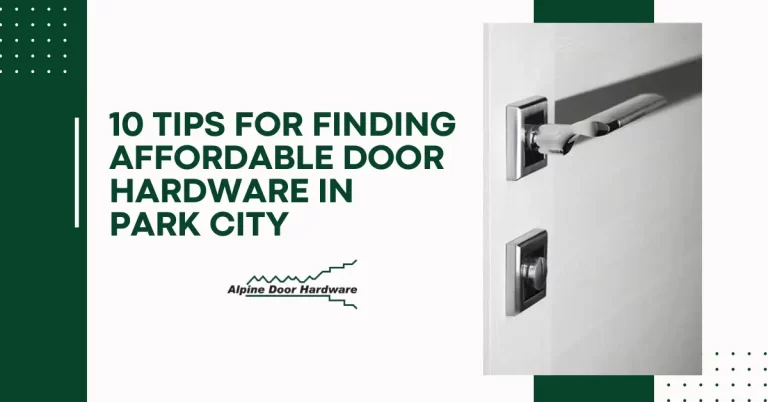Every year, 2.5 million burglaries are happening in the country, according to the Department of Justice. More than half of these involve forced entries into residential places. Considering these statistics, you may need to ask yourself whether your current security system can adequately hold off intruders attempting to enter your home.
To reinforce your property’s existing security system, one option worth considering is the installation of deadbolt locks. Yet, before proceeding with any lock installation plans, you must arm yourself first with pertinent information.
This includes understanding the prices of different deadbolt lock types and grasping the concept of lock grading, among other things. Equipped with this knowledge, you’ll make informed decisions about the most suitable deadbolt lock you can install at home or in the office.
What Are Deadbolt Locks?
Deadbolt locks feature a bolt that smoothly and securely slides into a strike plate affixed to the door frame. The bolt can effectively thwart any attempt to push or pull open the door forcibly when locked.
Unlike spring-operated locks, the deadbolt model exclusively responds to the designated key, enhancing its resilience and security quotient. Notably recognized for their robustness, these locks present an elevated tier of protection.
Also, owing to their non-spring nature, deadbolts pose increased challenges for unauthorized access attempts, rendering them notably more impervious to forced manipulation and brute force techniques.
What to Look for When Buying a Deadbolt Lock
Consider the following if you have plans to install the best deadbolt locks in your home and office:
1. Security Features
Prioritize deadbolt locks that have sophisticated security features. These can include an ANSI grading, which indicates resistance to forceful entry, anti-picking mechanisms, and anti-drill plates.
2. Material and Build Quality
Opt for deadbolt locks constructed from robust materials like solid metal, which can offer increased durability and resilience. Also, check if the lock has features like reinforced strike plates to prevent forced entry attempts.
3. Installation Complexity
See if a complex installation process is involved based on the lock type you’re getting. It’s not uncommon for some deadbolt locks to require professional installation due to their intricacy, but some can be easily installed on your own.
4. Price Range
Set a budget that balances your security needs and financial constraints. Remember, investing in a high-quality deadbolt lock can provide better long-term security, so avoid compromising solely on price.
How Do I Know What Size of Deadbolt Lock I Need?
If you’re unsure what deadbolt lock size will fit your door, you can use the following factors as reference points:
1. Door Thickness
The standard home door has a thickness of around 1 and 3/8 inches. Select a deadbolt lock that accommodates this particular measurement.
2. Backset
The backset is the distance from the edge of the door to the center of the borehole where the lock is installed. Common backset measurements are 2 and 3/8 inches and 2 and 3/4 inches, so choose a deadbolt lock that fits a typical backset.
3. Bolt Size
Consider the size of the bolt that extends from the lock up to the door frame. Ideally, the bolt should extend far enough into the frame to provide secure engagement. There’s also a need to ensure that the bolt size aligns with the door’s design and frame configuration.
4. Door Compatibility
Different door materials (wood, metal, composite) and designs may require specific deadbolt locks. Factors such as existing holes or recesses on the door could also affect how the lock gets installed.
What Types of Deadbolt Locks Are Available?
The following are the deadbolt lock types that are currently available on the market:
1. Single-Cylinder Deadbolt Locks
These deadbolt locks operate with a single key cylinder on one side and a thumb-turn on the other. They are easy to use from the inside and offer solid security when locked. However, they can be vulnerable when there’s a window nearby. An intruder could simply break the glass and turn the thumb-turn to gain entry inside.
2. Double Cylinder Deadbolt Locks
These deadbolt locks require a key to be inserted and turned on both sides of the door. While they offer enhanced security and eliminate the window vulnerability issue, the double-cylinder deadbolt can also become a safety concern at some point. This is because of the need for a key if you’re going out, which could pose a problem during emergencies.
3. Keyless Entry Deadbolt Locks
Utilizing electronic codes, the keyless entry deadbolt lock eliminates the need for traditional keys. They provide convenience, allowing easy entry for authorized people, with some models having features like temporary access codes for guests. However, this type of deadbolt lock may have vulnerabilities related to power outages and hacking activities.
4. Smart Deadbolt Locks
These locks contain several advanced features like phone-based remote control, integration with home automation systems, and activity monitoring. They can be easily customized, allowing users to do things like granting access remotely or receiving notifications about unexpected entries. For security issues about these smart locks, hacking and technical malfunctions are among the common culprits.
5. Vertical Deadbolt Locks
Designed for sliding doors and windows, vertical deadbolt locks can secure your property vertically rather than horizontally. They offer an alternative for certain entry points but might have specific compatibility requirements affecting efficiency.
6. Rim Deadbolt Locks
Mounted on the inside surface of the door, rim deadbolt locks are generally easy to install when compared to others. Nevertheless, the exposed design of the lock could potentially make them susceptible to tampering and manipulation.
7. Mortise Deadbolt Locks
These are deadbolt locks that are installed within the door itself and offer a high level of security. They often come with additional features like multi-point locking systems, but installation can be complex and may require the help of a professional locksmith.
What Type of Deadbolt Lock Is the Most Secure?
The most secure type of deadbolt lock is typically the “double cylinder deadbolt.” It normally requires using a key that will work from inside and outside the door. The double-cylinder deadbolt is ideal because it enhances your home security settings, preventing unauthorized entry even if the intruder can access the interior thumb-turn.
However, you should note that while this type of deadbolt lock offers superior security, it could also present potential problems in emergencies. This is because of the key requirement for both entry and exit purposes. Thus, while seeking the utmost security for your property is essential, you should still try to balance this with the need for safe and swift egress.
How to Pick a Deadbolt Lock
Generally, homeowners must understand how to pick their deadbolt locks. This will allow them to identify any unseen security vulnerabilities in their properties and take proactive measures to strengthen existing defenses.
However, since lock picking is often associated with criminal activities, the focus should instead be on improving your knowledge of security measures. Learning about lock mechanisms and advancements in security systems will help you make informed choices when protecting your home.
The Bottom Line
While no lock in the world can provide a complete guarantee against intrusion, deadbolts can mitigate the risks effectively. Most models also carry supplementary safeguards that can prove invaluable when it comes to optimal safety for your property.
You should also remember that every type of deadbolt lock has its own set of advantages and considerations. Given this, you need to choose the one that aligns with your security needs and complements your home’s design, including its doors. For this, there are several professional door hardware manufacturers that you can work with.
Level up your home security with deadbolt locks from Alpine Door Hardware.
If you’re looking for suitable deadbolt locks, it’s time to explore what Alpine Door Hardware has to offer you. As the premier destination for door hardware aficionados, we offer an extensive selection of superior door fixtures, including deadbolts, tailored to your style and preferences.
Backed by an experienced Park City door hardware team, we are your ultimate resource for premium security fixtures. Call us today, as we’re eager to be at your service.

